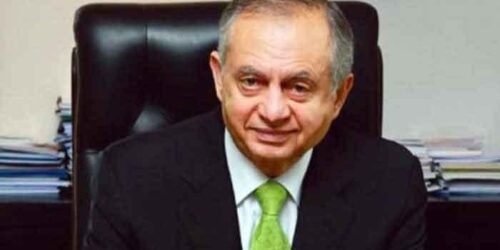ISLAMABAD: The government is working on budgetary incentives for 2021-22 to maintain its gains what it has so far achieved to put the country on way to industrialization, making solid ground for import substitution and emphasizing more focus on diversification in exports of the country, an adviser to the prime minister said Sunday.
In an exclusive chat with The News, Prime Minister’s Adviser on Commerce, Textile and Investment Abdul Razak Dawood said that the commerce ministry has shifted its paradigm with the PM’s nod. Now the ministry working on budgetary proposals for tariff reduction of some raw materials and inter-medium goods required for exports of various products with more focus on diversification.
He revealed the ministry is also working on various incentives to encourage the export of high value-added products that include the four percent of export value to be provided to exporters in first year, three percent in second year, two percent in third year and one percent in fourth year.
This package of incentives would last for a certain period under the sunset cause, the adviser added. “Earlier Finance Division and FBR used to make the budget, but this time the commerce ministry has come up with a unique philosophy on direly-needed budgetary measures for 2021-22 to not only maintain its success while putting the country on path of industrialization, but also to import substitution and diversification in exports.
The ministry is currently in touch with FBR for its input on the budgetary proposals,” said the adviser. He said that country has some traditional and developmental export industry. The traditional exports include textile, leather, surgical, carpets, sports goods and rice, adding the developmental exports include engineering, chemicals, food processing, dairy, pharmaceuticals and plastic goods.
The adviser said garments are the high value-added products in textiles, but we are going to emphasize that the textile industry should start exporting the lady garments as the industry is lagging behind in this sector. In leather industry also, it is also lagging behind in producing exportable lady handbags and shoes.
Razak Dawood said the government would encourage the engineering industry to make high value-added products such as two wheeler, three wheeler and electrical goods for domestic use —refrigerators, microwave ovens, transformers, mobile phones etc.
For the pharmaceutical sector, the government is working to help them scale down their cost of production. “In plastic industry, we are working to bring down tariffs on the raw materials for export products,’’ Mr Dawood said, and added: “In engineering industry, we are also going to stress the industry to manufacture more value-added forks, spoons, knives for exports.”
He said that his ministry is working for gaining access to markets of Afghanistan and, particularly, Uzbekistan — the gateway to the Central Asian States and Russia. Access to the Uzbek market would help the government reinforce its efforts for industrialization in the country.
Razak Dawood said the government is going to ink three agreements with Uzbekistan for free movement of trucks, while transit trade would provide Pakistani goods access to markets with other vital Central Asian States and Russia.





